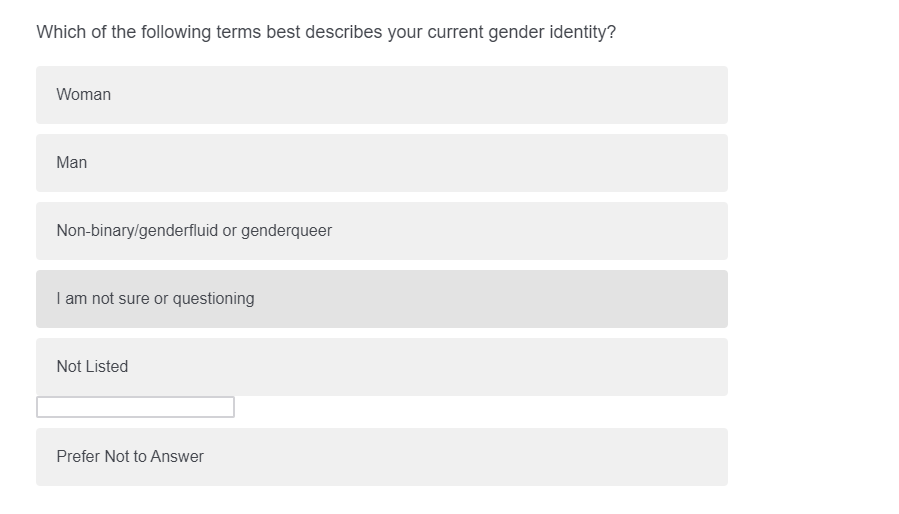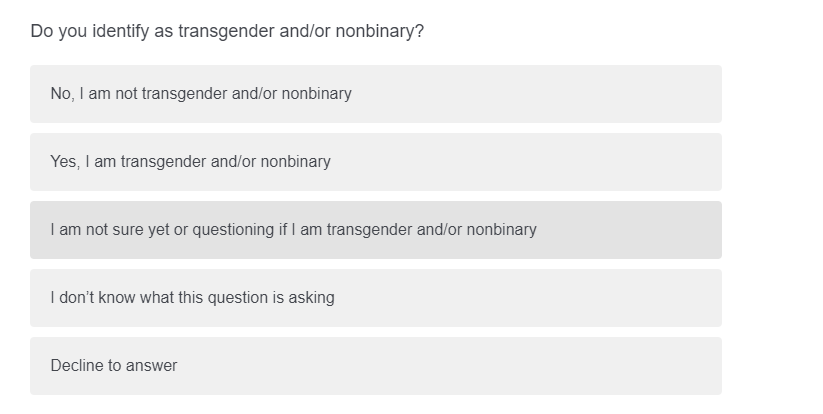The MSU IRB is regularly reviewing research within the lens of equity and inclusivity. Much of our research portfolio includes research that collects demographic data such as gender and/or sex. In order to promote inclusivity, we are providing some examples and suggestions below. Ultimately, researchers must determine how to appropriately ask their participants questions related to gender or sex. Please keep in mind that all demographic information collected should be necessary and relevant to your analysis. If we feel as though your survey design marginalizes any group, the IRB analyst will ask you to update your tools as part of the IRB review process.
See infographic for guidance on gender identity questions in research.
The following are some examples of promoting inclusivity in your research design and demographic questions. in addition to asking; Using the appropriate pronouns during recruitment and consent is absolutely critical. In fact, not using appropriate pronouns is potential dehumanizing and erasing someone’s identity. All research team members should be training in use of pronouns. Want more information on proper use of pronouns? please check out this MSU resource from the LGBTQ Center. or What are My Pronouns? Why do they Matter? It may acceptable to ask about ‘sex assigned at birth’ if the study has justification for doing so. However, please understand that research has shown that transgender respondents have raised concerns about asking this question on surveys. Sex assigned at birth should not be used in place of asking about gender identity. Some references on this topic: The Trevor Project’ Research Brief on Measuring Youth Sexual Orientation and Gender Identity or 

